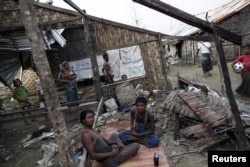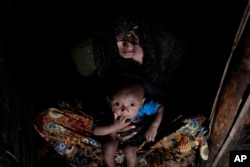The government and military of Myanmar are responsible for burning down hundreds of buildings in the Rakhine State during the past three months as retribution for militant attacks on security forces, according to a report from Human Rights Watch.
Since October 9, government forces are responsible for burning down at least 1,500 buildings, in some cases torching entire villages and forcing thousands of ethnic Rohingya Muslims from their homes.
Human Rights Watch Asia director Brad Adams said, “The new findings refute the Burmese military and government’s claims that Rohingya militants were responsible for burning down their own villages. The satellite imagery and eyewitness interviews clearly point the finger at the military for setting these buildings ablaze.”
The timing of multiple arson instances shows a systematic building destruction that coincides with the presence of military forces in the area. In several separate instances, fires started in villages just hours after government forces reported being attacked by militants in the area.
According to witness accounts in the report, soldiers used rocket launchers and gasoline to lay waste to large swaths of buildings at a time.
One witness, Abdul, from Kyet Yoe Pyin village tract, said he saw the army setting fire to his village and “aiming and firing at people,” shortly before he fled on October 12.
Last week, more than a dozen diplomatic missions called on the Myanmar government to allow humanitarian aid into the Rakhine State, which has been virtually cut off since a military operation began two months ago.
The government has denied most journalists and aid access to Rakhine state since its counterinsurgency operation began two months ago, following the killing of nine border guards by unidentified attackers.
The government has stated multiple times their intention is to allow aid to be delivered to the area, where more than 80 people have died and more than 20,000 have fled to Bangladesh.
The U.S. Embassy in Myanmar on Monday asked all sides in the country to cease hostilities and allow peace efforts to move forward.
“Continued conflict undermines the trust necessary to achieve a durable peace, and disproportionately affects the lives of innocent civilians and the thousands of IDPs forced from their homes,” the embassy said in a statement.






